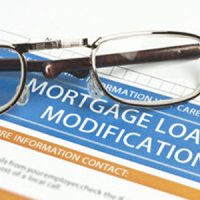When Your Mortgage Forbearance Is Ending, But You’re Still Broke

Many of the solutions that the federal government and private businesses offered to financially distressed consumers during the COVID-19 pandemic were meant to be short-term, but the pandemic has proven to be anything but that. Even though some programs ended up getting extended or renewed, the temporary generosity of the private and public sectors is no match for the ongoing financial hardships of millions of Americans. Mortgage forbearance is one example of a temporary solution that can make your situation worse unless the circumstances that led you to apply for the forbearance in the first place were naturally self-limiting. If you are still struggling financially as your mortgage loan forbearance period ends, contact a Plantation home loan modification lawyer.
What Is Mortgage Forbearance?
Loan forbearance is when a lender temporarily pauses payments on your loan; it typically lasts six months. At the end of the six months, your payments resume, and you are also on the hook for the six installments you missed. Some forbearance agreements require you to pay the paused payments in a lump sum, sometimes called a balloon payment, at the end of the forbearance period. Others enable you to pay the deferred amount in installments, effectively making your monthly mortgage payment higher than it was before the forbearance; this increased monthly payment will last until the deferred amount is paid off, which typically takes more than a year. Unless you are certain that you will be getting a windfall within six months, mortgage forbearance does not solve your problems; it only delays them.
What to Do When Your Forbearance Ends, but You Still Can’t Pay
If your mortgage forbearance is about to end, but there is no end in sight to the financial problems that caused you to apply for a forbearance, you have several options:
- If possible, start making mortgage payments again. Ask your lender to let you pay the smallest possible installments on the missed payments, over the greatest amount of time.
- Ask for a loan refinance or loan modification. In other words, extend the term of your loan, which will mean that you will pay more overall, but it will make your monthly payment amount less.
- File for chapter 13 bankruptcy. As long as your bankruptcy case is going on, your mortgage lender does not have the right to require you to make payments. The lender just has to wait until your bankruptcy case is finished, and then they can see what will happen with your mortgage.
None of these solutions is as simple as just saying the words and making your debt go away. A bankruptcy and debt lawyer can help you decide which option is the best one for you.
A Bankruptcy Lawyer Can Help You Ditch Your Debts While Keeping Your House
When you have the help of a bankruptcy lawyer, filing for bankruptcy does not have to mean giving up all your possessions, including your house. Contact Nowack & Olson, PLLC in Plantation, Florida to discuss your case.
Resource:
washingtonpost.com/business/2021/08/03/faq-foreclosure-moratorium-ending/
